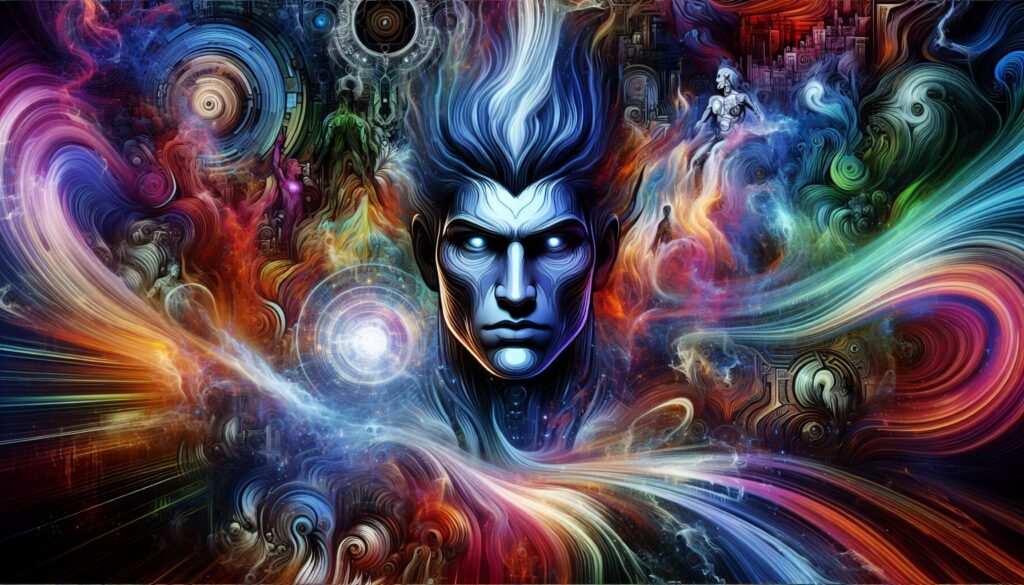Anime has a unique way of captivating audiences, blending vibrant artistry with compelling narratives. One of the most intriguing aspects is the concept of power—how it’s portrayed, challenged, and transformed throughout various series. Whether it’s through supernatural abilities or the sheer will of a character, power dynamics shape the stories we love.
As I dive into the world of anime, I find myself fascinated by the multifaceted representations of power. From epic battles to personal growth, these themes resonate deeply with viewers. Join me as we explore how power influences character development and drives plotlines in some of the most beloved anime series.
Key Takeaways
- Power Dynamics in Anime: Anime intricately portrays power through various characters, emphasizing its complexity beyond mere physical strength, including emotional and intellectual influence.
- Character Development: Characters evolve significantly through their experiences with power, such as Goku’s resilience and Madara’s moral decay, highlighting how power impacts identity and relationships.
- Thematic Exploration: Series like My Hero Academia and Attack on Titan address ethical dilemmas surrounding power, encouraging viewers to reflect on its implications in personal and societal contexts.
- Storytelling Techniques: Innovative storytelling methods, such as non-linear narratives and character backstories, enhance the exploration of power, making it a critical element in engaging narratives.
- Visual Artistry: The unique visual style of anime complements its themes, utilizing character designs and animation quality to convey deeper meanings related to power dynamics.
- Audience and Critical Reception: Power-centric anime has resonated with audiences and critics alike, fostering discussions on the nuanced portrayal of characters and their moral struggles.
anime:fdzapqlwysm= Power
Anime often delves into the theme of power, showcasing its complexity through various characters and story arcs. Power manifests not only in physical strength but also in authority, emotional influence, and intellectual capabilities. Different series address the consequences of power, whether it fosters growth, leads to corruption, or creates conflict.
Characters like Goku from Dragon Ball Z and Madara Uchiha from Naruto embody physical power, but their journeys reveal deeper themes. Goku’s pursuit of strength emphasizes resilience and friendship, while Madara’s quest for dominance illustrates the perils of ambition. These portrayals contribute to a richer understanding of power dynamics.
Moreover, series like My Hero Academia present power in the context of society. All Might’s heroism underscores the responsibility that comes with power, while Midoriya’s journey reflects the struggle to harness inherited abilities. This narrative approach highlights the diverse implications of possessing power.
Power also features in emotional and psychological dimensions. In Attack on Titan, characters grapple with moral dilemmas, showcasing how power can corrupt ideals. Eren Yeager’s evolution from a hopeful soldier to a controversial figure highlights the transformative nature of power amid chaos.
These multifaceted interpretations of power in anime draw viewers into thoughtful reflections on morality, personal growth, and societal structures, encouraging deeper engagement with the medium.
Key Themes and Concepts
Anime explores various themes of power, shaping character arcs and driving narratives. The multifaceted portrayal of power engages viewers, prompting them to consider its implications in both personal and societal contexts.
Character Development
Character development in anime often hinges on the theme of power. Characters like Goku in Dragon Ball Z grow through challenges that test their strength and resolve. Goku’s resilience and ability to forge powerful bonds exemplify how power can lead to personal evolution. In contrast, Madara Uchiha from Naruto showcases a darker journey, where the pursuit of absolute power leads to moral decay and isolation. Characters evolve in response to the influence of power, whether it fosters growth or corruption, shaping their identities and relationships.
Storytelling Techniques
Storytelling techniques in anime enhance the exploration of power’s complexities. Utilizing non-linear narratives and character backstories, series like My Hero Academia frame power within societal contexts. The narrative juxtaposes heroes and villains, highlighting the ethical dilemmas tied to authority and influence. Attack on Titan employs shocking plot twists that reveal the corrupting nature of power, urging viewers to engage with the moral conflicts faced by characters. Through visual symbolism and thematic foreshadowing, anime effectively communicates the diverse interpretations of power, enriching the viewing experience.
Visual and Artistic Style
The visual and artistic style of anime significantly contributes to its storytelling and thematic depth. A striking fusion of color, movement, and design captivates audiences, enriching the experience of power dynamics within the narratives.
Animation Quality
Animation quality varies widely across anime, influenced by studio budgets, production schedules, and artistic choices. High-quality animation utilizes fluid movement and intricate detailing, effectively conveying emotional intensity and action. For instance, Studio Ghibli’s films showcase breathtaking backgrounds and smooth character movements, enhancing the story’s appeal. In contrast, lesser-known series may feature more simplistic animation but excel in unique storytelling techniques, proving that engaging content can thrive regardless of animation quality.
| Animation Quality Example | Notable Series |
|---|---|
| High Quality | Attack on Titan, Demon Slayer |
| Moderate Quality | My Hero Academia, One Piece |
| Low Quality | Some Webtoons, Short Films |
Character Design
Character design plays a crucial role in defining personalities and conveying themes of power. Distinctive traits often symbolize traits or abilities, making characters memorable. For example, Goku’s spiky hair and martial arts attire represent his energetic and heroic nature, while Madara’s dark attire signifies authority and menace. Additionally, exaggerated features, such as large eyes and expressive faces, allow for deeper emotional connections. Series like My Hero Academia implement varied designs to reflect each character’s Quirk, emphasizing individual motivations tied to power.
| Character Design Element | Example |
|---|---|
| Hair | Goku – spiky, bright |
| Outfit | All Might – hero costume |
| Facial Features | Eren Yeager – expressive |
Reception and Impact
Anime focusing on the theme of power has garnered significant attention from both audiences and critics. Viewers engage deeply with the intricate portrayals of power dynamics, while critical analysis often highlights the thematic richness present in these narratives.
Audience Feedback
Audience feedback on power-centric anime reveals diverse perspectives. Fans often celebrate the complexity of characters like Eren Yeager and Goku, identifying with their struggles and transformations. Enthusiastic discussions in forums like Reddit and MyAnimeList emphasize how these characters resonate with viewers on emotional levels. Numerous fans express admiration for series like My Hero Academia, appreciating the balance between superhero power and its ethical implications. Reviews frequently mention the relatability of characters facing moral dilemmas, reinforcing the connection between viewers and the thematic elements.
Critical Acclaim
Critical acclaim for anime exploring power underscores its artistic and narrative achievements. Renowned publications such as IGN and The Japan Times highlight the innovative storytelling techniques utilized in series like Attack on Titan and Demon Slayer. Critics commend the visual artistry that conveys the emotional weight of power struggles, enhancing audience engagement. Awards from institutions like Tokyo Anime Award Festival recognize excellence in animation and storytelling, further validating the impact of these series. The critical discourse often elevates the conversation around anime as a legitimate art form, exploring its significance in addressing complex societal issues related to power dynamics.
complexities of strength
Anime’s exploration of power captivates me like no other medium. The way it delves into the complexities of strength and influence reveals so much about human nature. I appreciate how characters evolve through their encounters with power whether it builds them up or leads them astray.
The artistic styles and storytelling techniques only enhance these themes making each series a unique experience. I’m drawn to the moral dilemmas and emotional journeys that challenge my perceptions of power in society.
As I continue to watch and analyze these narratives I find myself reflecting on my own relationship with power and its implications in my life. Anime not only entertains but also invites us to engage with profound questions about authority and personal growth.

